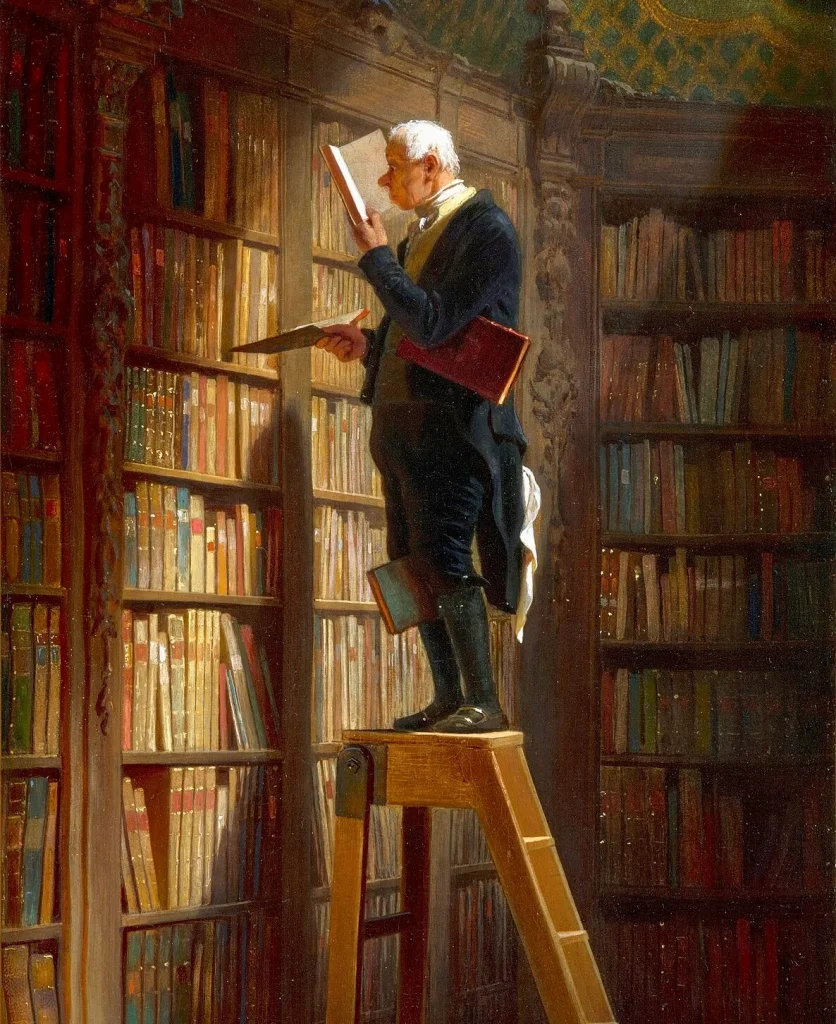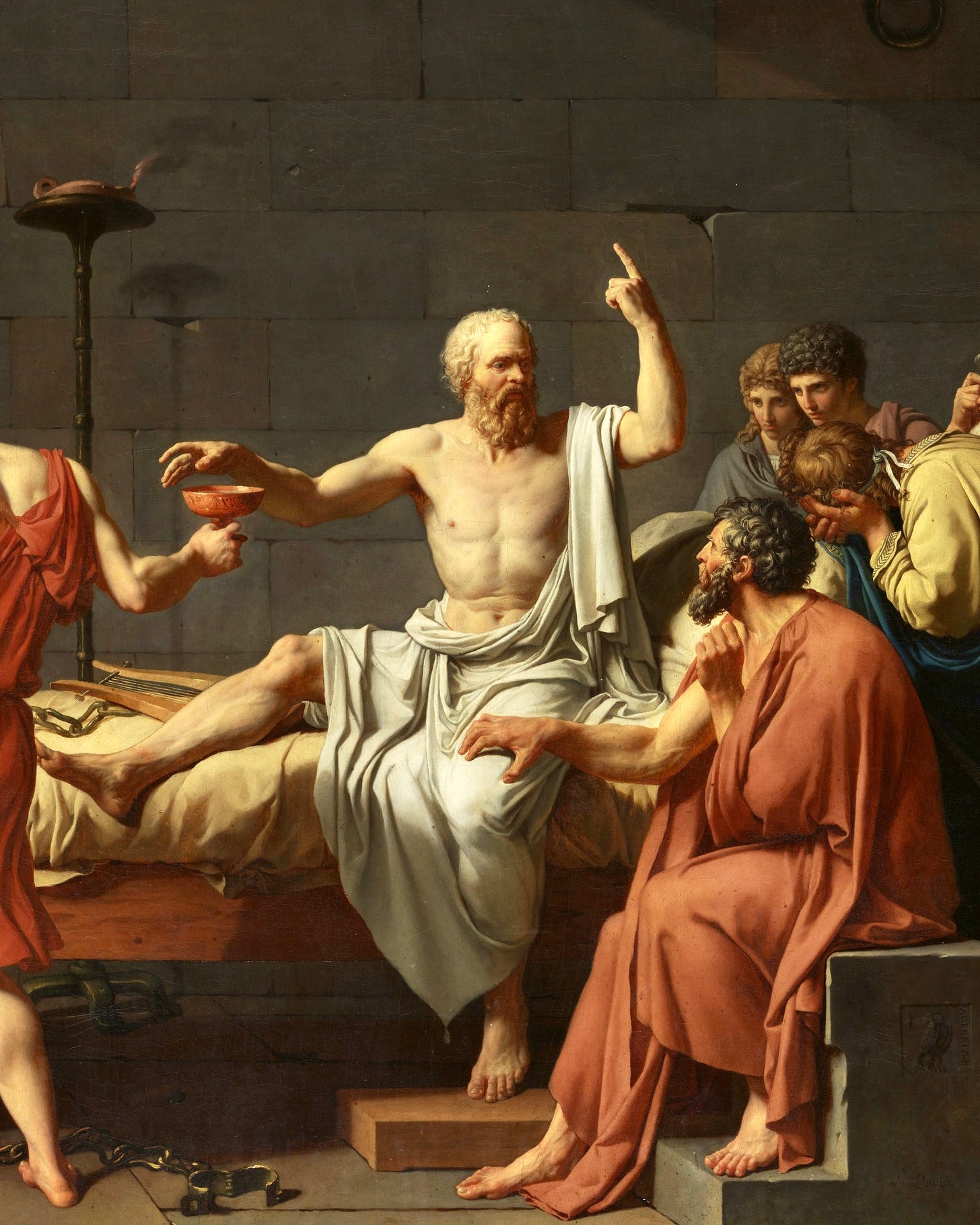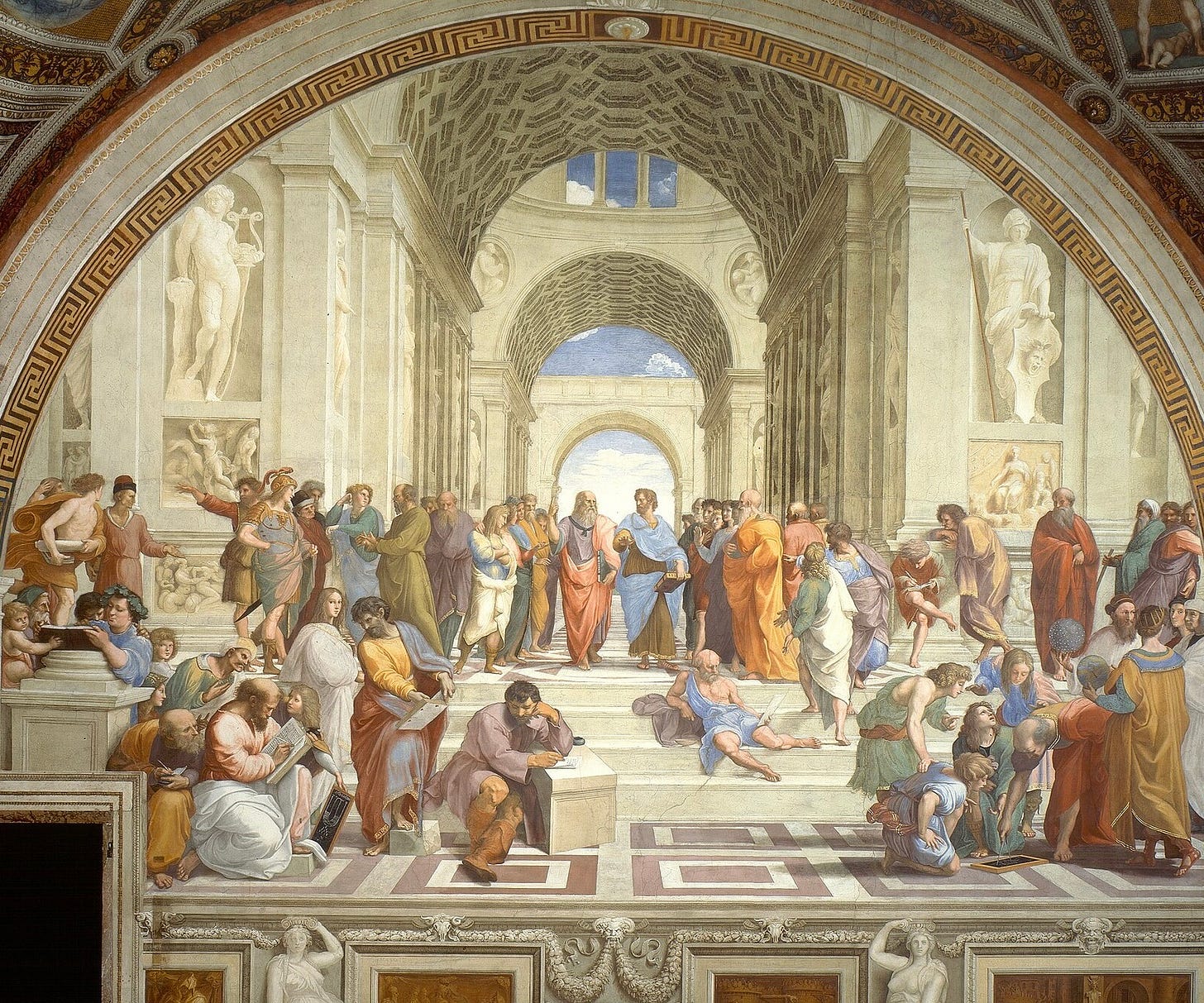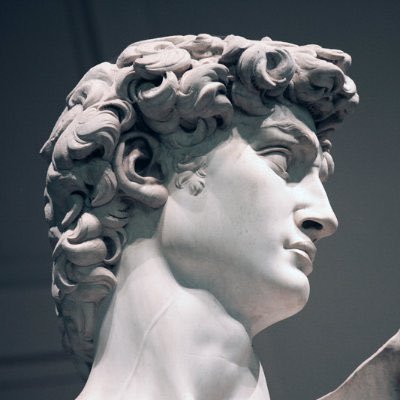“How to Fix Education”

Originally posted on the author’s Substack
What the ancients knew that we forgot…

The word education has meant a lot of different things over the centuries. You may think it comes from the Latin ēdūcere, “to lead out” — because the tutor of a wealthy Roman family would lead the children to school, or because he’d use the Socratic method of asking questions to “draw out” answers.
These are good stories, but they’re made up. Education comes from ēducāre — meaning “to raise, rear; to train.” So, the word “education” comes from the word “education”!
However, there was a distinct idea of what education meant in ancient Greece and Rome. It was training specifically in seven liberal arts: grammar, dialectic, rhetoric, arithmetic, geometry, music, and astronomy.
But more importantly, it was training to be human.
Let me explain what I mean — and what the ancients knew about education that we’ve long since forgotten…
Ancient Wisdom
Lots of things about the “seven liberal arts” might seem arbitrary. Why seven, and what’s “liberal” about them?

We’ll skip the details and jump to what they had in common in the ancients’ eyes. These subjects were “liberal” because they were the kind of thing studied by līberālēs, “free men.” Cicero, for instance, didn’t study music to know how to use it in a commercial, or dialectic because it would qualify him for tenure. He studied music and dialectic for the pleasure of understanding them.
Nowadays, we often hear that teaching this or that subject is a waste of time, because students “are never going to use it in the real world.” But, to the ancients, this would be the precise opposite of liberal.
A strictly practical education was for servī, “slaves.” They didn’t have time for the ancient equivalents of Pride and Prejudice or The Columbian Orator; they had work to do. As theoretical disciplines were liberal arts, practical disciplines were servile arts.
People might study arithmetic for the fun of it; nobody ever studied accounting for the fun of it. We only learn servile arts for the sake of something else.

The liberal arts, on the other hand — you were led to those by natural human curiosity. The first line of Aristotle’s Metaphysics, one of the greatest philosophical texts ever written, is “All men by nature desire knowledge.”
There is something in the human soul that craves to understand, like our bodies crave light after being kept in the dark. As a free man, you studied the seven liberal arts for their own sake…
How to Become Human
The seven liberal arts were traditionally divided into three humanities and four sciences. Grammar, dialectic, and rhetoric were the humanities; hūmānitātēs meant something like “cultivations,” “refinements,” even “courtesies.” Arithmetic, geometry, music, and astronomy were the scientiæ, the sciences (all, even music, were studied mainly in mathematical terms).
You might think of it as the humanities as making you pleasant to talk with, while the sciences give you something to talk about.

The four sciences are still interesting to this day, but — aside from the grounding in mathematics that they represent — they are also more malleable, even replaceable. If you exchanged astronomy for geology, or music for physics, you’d still be getting essentially the same kind and caliber of education.
The same thing is not true of the humanities. They have to come first — not because science is unimportant, but because the humanities teach students how to use language; and all knowledge, even mathematical knowledge, is conveyed through language.
So, what are grammar, dialectic, and rhetoric?

Grammar is the plainest. In antiquity, grammar meant more than what’s covered by Schoolhouse Rock. It included parts of speech and tenses and when to say “and I”; but its standard material was the classical poets, especially Homer. Its province hardly differs from the subject of English (as we used to call it). Grammar teaches us how to talk in the basic sense — how to comprehend and convey ideas.
Dialectic is logic, especially deductive logic. It isn’t exactly what we call “critical thinking”; they’re related, but that’s an umbrella term — it also covers certain aspects of both rhetoric and the scientific method. Dialectic tells you when reasoning is cogent, when it is uncertain, and when it is dead wrong. Having learnt from grammar how to talk, dialectic teaches you to talk sense.
And thirdly, rhetoric. Rhetoric brings in the ethical, social, emotional, and aesthetic elements of speech; it teaches us how to be not only clear and cogent, but captivating. Rhetoric, because it has come after dialectic, is ideally placed to help us persuade in an honest way, uniting sound reasoning with appropriate feeling.
Save the Humans
It’s probably clear that most modern schools don’t teach the above. Insofar as education increasingly focuses only on what will get students jobs, it is essentially a servile arts education. It, by definition, trains pupils to be servī. It’s no wonder it seems that there’s a crisis in our culture.

Fortunately, there is a growing movement to restore the ancient foundations of education in America — recognizing that this could be the secret to creating students who are curious, virtuous, thoughtful, and inspired.
One prominent leader in the movement is Classic Learning Test (CLT), which is redefining standardized testing through a traditional, classical lens.
By taking something as “utilitarian” as standardized tests and refocusing them on the True, Good, and Beautiful, CLT is shaking up the education space. In addition to offering more meaningful tests, it’s a catalyst for educational renewal by contributing to the national conversation on education and culture.
As the classical education renewal movement picks up steam, it’s important to remember that there’s one person permanently at our disposal, whom we can start educating at any moment: ourselves.
We can always choose, as citizens of the invisible realm of thought, to be free women and men at any instant.
All we need to do is pick up a book.
_________
Follow DailyClout on Rumble! https://rumble.com/user/DailyClout
Please Support Our Sponsors
Birch Gold Group: “A Gold IRA from Birch Gold Group is the ultimate inflation hedge for your savings in uncertain times. To see how to protect your IRA or 401(k), get your FREE info kit on gold by texting the word DAILYCLOUT to 989898”
The Wellness Company: https://dailyclouthealth.com
Use code DAILYCLOUT for 10% off!
NativePath: “Collagen supplements help you replace what you stop producing — and the studies speak for themselves. Visit https://getnativepath.com/dailyclout for a MASSIVE 45% discount plus free shipping!”
BiOptimizers: “Over 75% of the population is magnesium deficient. Nurture your mind and body with this all-natural, full-spectrum magnesium supplement. Go to https://bioptimizers.com/dailyclout and use promo code DAILYCLOUT for 10% off!”
Patriot Mobile: “Visit https://patriotmobile.com/dailyclout for a FREE month of service when you switch!”
Order ‘The Pfizer Papers’ and Support Our Historic Work: https://www.skyhorsepublishing.com/9781648210372/the-pfizer-papers/
Discover LegiSector! Stay up-to-date on issues you care about with LegiSector’s state-of-the-art summarizing capabilities and customizable portals. No researchers needed, no lobbyists, no spin. Legislation at your fingertips! Learn more at https://www.legisector.com/
Subscribe to DailyClout so you never miss an update!




